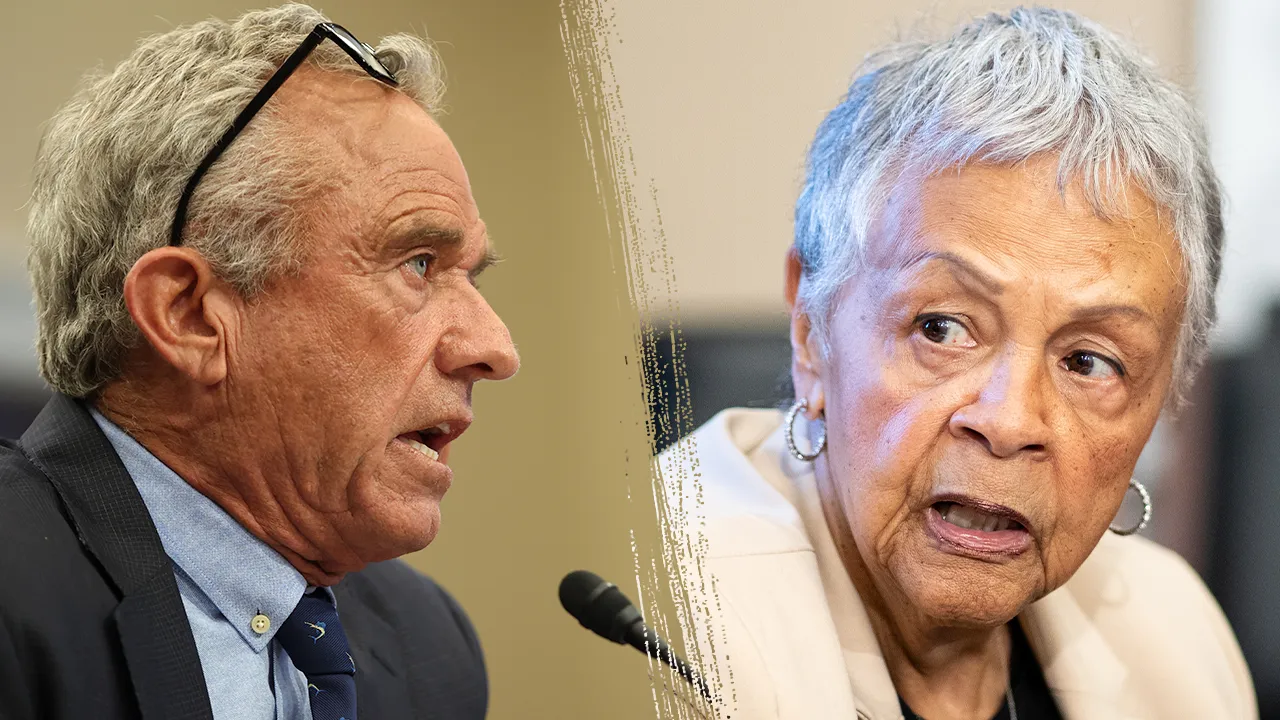Congresswoman Challenges HHS Over Cuts to Black Health Equity Programs
Watson Coleman cited data showing that Black women in the United States are 2.6 times more likely to die from childbirth-related complications than white women.
WASHINGTON — A congressional hearing turned tense this week as Rep. Bonnie Watson Coleman (D-N.J.) grilled Health and Human Services Secretary Robert Kennedy Jr. over the administration’s overhaul of public health initiatives that have historically served Black communities.
Lawmaker Decries Elimination of Key Health Equity Language
Watson Coleman condemned what she described as a calculated effort to strip federal grant language and internal agency documents of terms like “Black,” “disparity,” “racism,” and “oppression.” She called the move a “racist and ignorant crusade” that signals a regression in racial equity policies.
“This administration is attempting to legitimize racial discrimination,” Watson Coleman said. “That, sir, is a moral disgrace.”
The congresswoman linked the policy shift to broader attempts to undercut racial justice efforts across federal agencies.
Black Maternal Mortality at Center of Debate
Pointing to maternal health disparities, Watson Coleman cited data showing that Black women in the United States are 2.6 times more likely to die from childbirth-related complications than white women. This gap widened despite an overall drop in maternal mortality last year.
She pressed Kennedy on the elimination of targeted health equity offices and questioned how sanitizing federal language would improve health outcomes. “How exactly will banning the words we use to describe ourselves make us healthier?” she asked.
HHS Defends Consolidation, Not Cuts
Kennedy responded that the department plans to maintain seven of its eight minority health offices and consolidate 42 maternal health programs. He emphasized the administration’s continued investment of $1.7 billion annually in maternal care and minority health, describing the changes as restructuring rather than reduction.
“We are focused on delivering services more efficiently,” Kennedy said.
Watson Coleman rejected that framing, insisting that rebranding or consolidating programs without public accountability is insufficient. “The impact of reorganization is something I shall continually ask you to show me,” she said. “I want numbers. I don’t want words.”
Energy Assistance Cuts Also Criticized
In addition to health disparities, Watson Coleman criticized proposed funding cuts to the Low Income Home Energy Assistance Program (LIHEAP), which provides heating and cooling support for vulnerable families, particularly in low-income and minority communities.
“Why eliminate this?” she asked. “Why target the programs that serve the most vulnerable?”
Broader Debate on Racial Equity in Federal Policy
The exchange reflects growing tensions over the future of racial equity initiatives in federal policymaking. Watson Coleman firmly opposed the administration’s apparent shift toward “colorblind” policy narratives, calling them disingenuous.
“It is not ‘woke’ to care about the health and well-being of Black people,” she said.
Policy analysts and civil rights advocates outside the hearing echoed those concerns. Critics argued that dismantling equity-centered programs threatens to reverse gains made in addressing systemic health disparities.
“If this administration truly cared about Black health, it would work to expand—not erase—opportunities for representation in healthcare,” said one health policy expert.
Push for Oversight and Accountability
Watson Coleman concluded by signaling that oversight efforts will intensify. “I don’t care about the past. I care about your performance in this administration right now,” she said.
As the administration remains silent on whether it will revise or reverse its restructuring plans, lawmakers and advocacy groups continue to demand clarity and accountability for communities most affected by health inequities.







